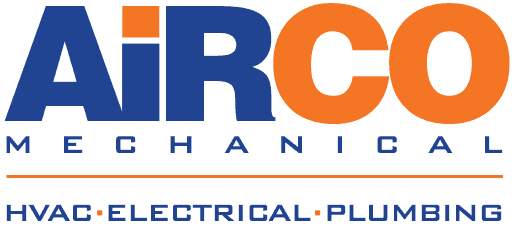Does AC Help With Allergies?

Allergies plague millions of people throughout the world. In fact, worldwide allergic rhinitis, also known as hay fever, affects between 10 percent and 30 percent of the entire population, according to the American Academy of Allergy, Asthma, and Immunology. Each year, this suffering group heads to the doctor’s office and the allergy aisle at the local drug store to relieve symptoms.
However, most health professionals will tell you the best way to relieve allergies is to avoid the allergen. That’s where a good air conditioning system can step in and play a role in reducing allergic symptoms in your Austin home.
Common Allergens and Symptoms
Most people will have a wide variety of allergens naturally present in their homes from simply daily life. All humans shed layers of skin, which creates dust and food for dust mites. Many homes have pets today, and dog and cat hair and dander are common allergens as well.
During the growing season, pollen from trees, grass, and flowers can make their way into your home. Even the fabric of your clothing and tiny particles from things like paper and furniture can affect air quality. Add other items like mold, fungus, bacteria, viruses, pests, and rodents to the mix, and you can end up with significant allergies.
For homeowners, symptoms can range from minor sneezing and irritation to significant asthma and respiratory distress. Allergy sufferers can work to avoid the allergens by keeping pets clean or outdoors, cleaning frequently using high-efficiency particulate air (HEPA) vacuum systems, and installing air purification systems. In addition, having allergy medications or shots can help relieve symptoms.
Why Air Conditioners Make a Difference
Air conditioners can help relieve allergies in two ways. First, most air conditioners are part of an overall heating, ventilating and air conditioning (HVAC) system. HVAC systems require air filters to clean the air as it moves throughout your Texas home.
When these filters are changed regularly, they can trap a wide variety of particles that typically cause allergies. Dust, dust mites, pet dander, and many other irritants can be removed from the air. Some systems can trap even smaller particles through a fine HEPA filter.
Second, air conditioners can help control humidity. Allergens such as mold and fungus grow and thrive in moist, warm conditions. A well-functioning air conditioner can help keep home humidity levels between 30 percent and 50 percent, which will keep allergens like mold and fungus at bay.
Importance of Regular Air Conditioner Maintenance
In order for your air conditioning system to provide optimal allergy relief, it’s important to keep it clean and well maintained. Failing to change filters can result in your HVAC system continually circulating allergens throughout your home.
In addition, leaks or problems within your system can result in spot humidity issues, causing unwelcomed mold or fungi growth in nooks and crannies.
Our team at AiRCO Heating and Cooling recommends taking the following steps to keep your air conditioning system running well:
• Change your air filters regularly
• Consider HEPA filters for severe allergies
• Remove dust and debris around air conditioning units and registers
• Check your drip pan, drain, air handler, and coils for signs of leaks, mold, or wear
• Think about upgrading your air conditioner if it’s more than a decade old
• Have an HVAC professional inspect, clean, and maintain your system annually
• Research air purification systems to complement your air conditioning unit
Contact Us for Your Air Conditioning Needs
Our AiRCO professionals in Austin, Texas, can help you select, inspect, or maintain an air conditioning system, so it not only operates at peak efficiency but also can help you relieve allergies. Call us today at 512.537.1234 or request service online.
